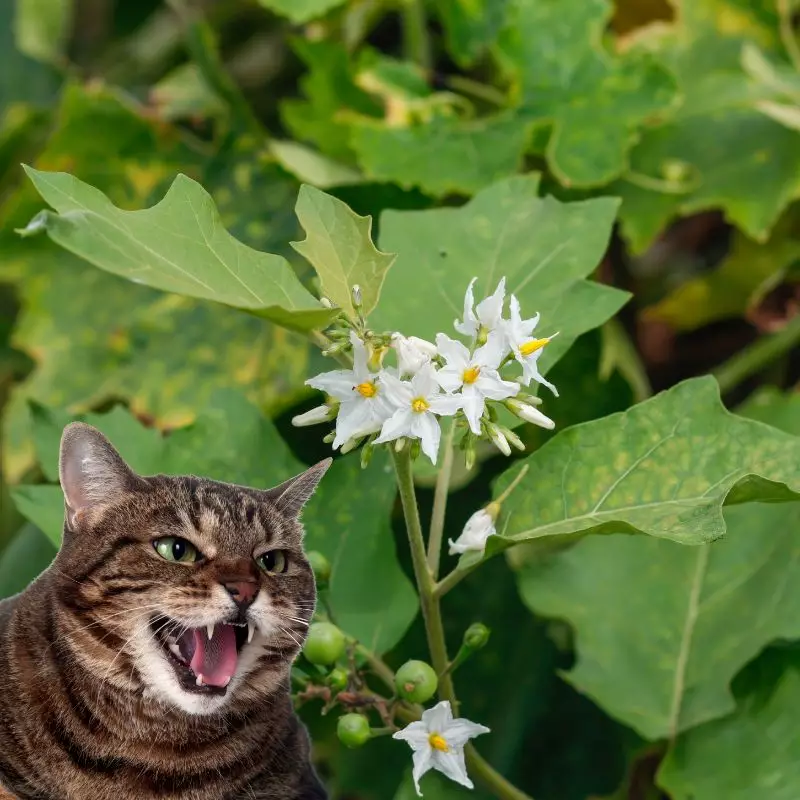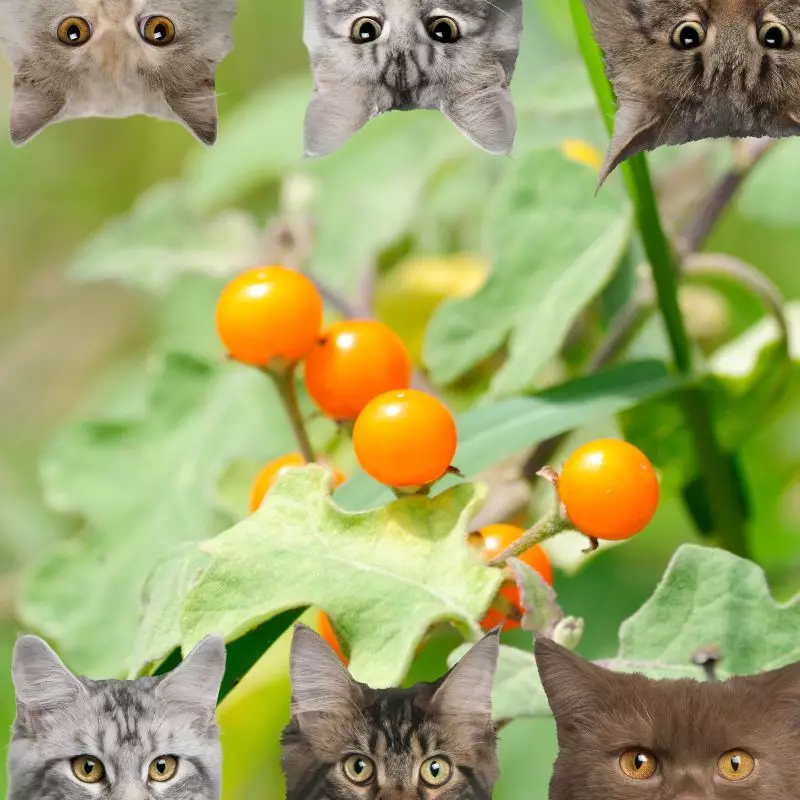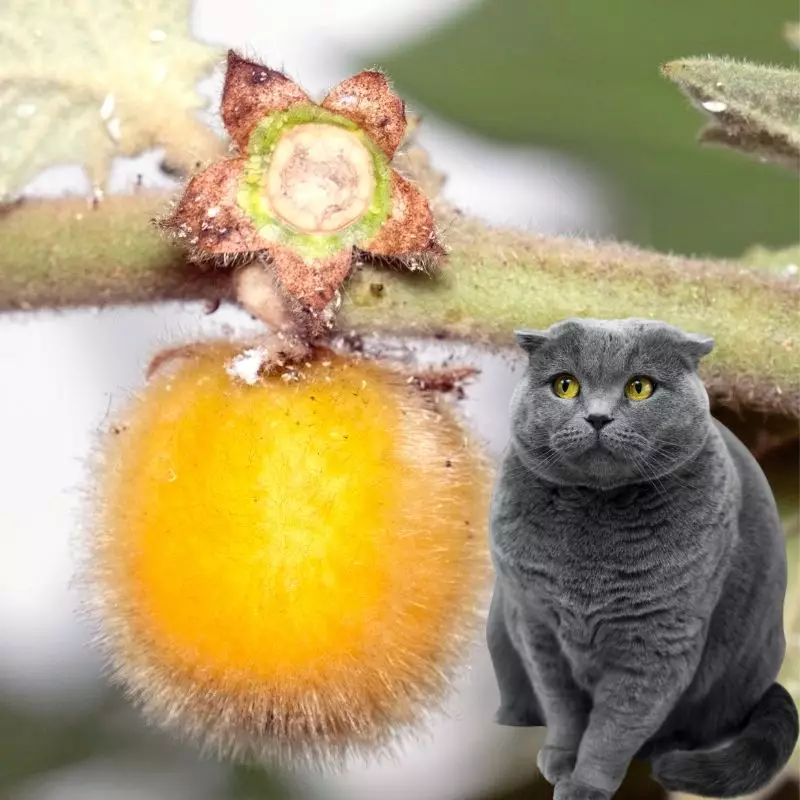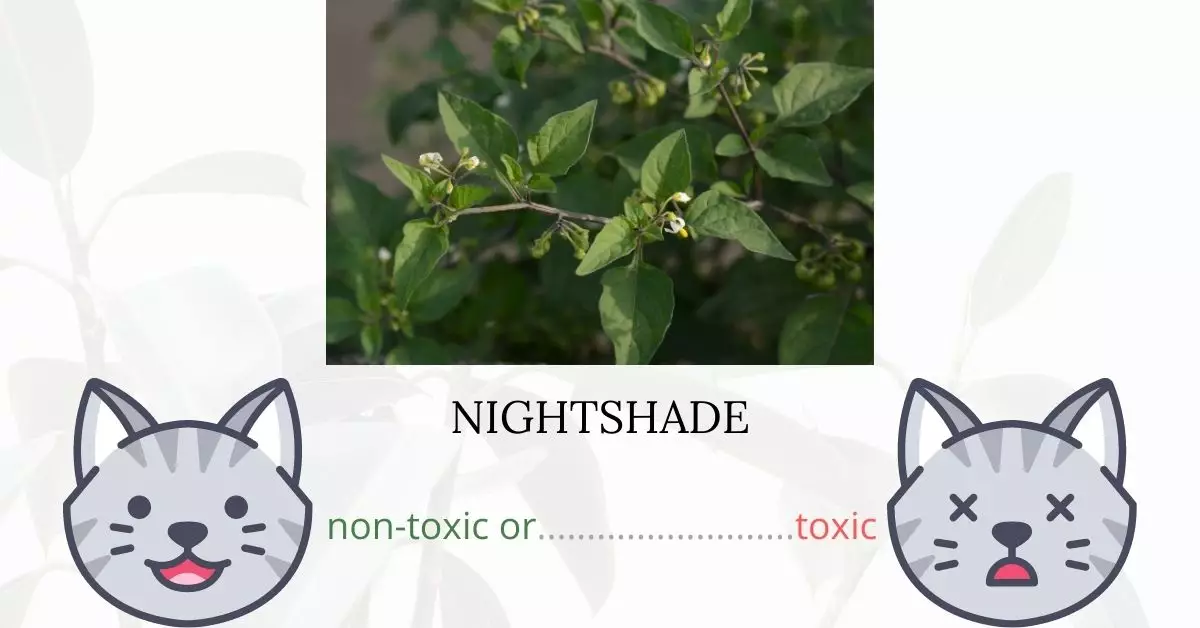Yes, nightshade is toxic to cats. The genus Nightshade comprises around 2,300 flowering plants, and all parts of these plants contain anticholinergic tropane alkaloids, such as Atropine, hyoscine, and hyoscyamine. Atropine, in particular, interacts with the parasympathetic division of the central nervous system. It inhibits the ability of one nerve cell to receive messages from another by blocking receptors. Ingesting nightshade is a medical emergency for cats, potentially leading to severe illness for several days or even death.
This article was crafted in collaboration with a team of experienced DVMs (doctors of veterinary medicine). Through their expert insights, we strive to provide accurate and up-to-date information on the potential risks associated with various plants, specifically Nightshade, and their effects on cats. Additionally, we have consulted high-authority websites such as ASPCA and PetMD to further ensure the reliability of our information.
Clinical Signs of Nightshade Poisoning in Cats

After a cat has ingested, smelled, or come into contact with the Nightshade plant, symptoms might not manifest until six to twelve hours later. Here’s a breakdown of the common symptoms of nightshade poisoning and their reasons:
- Anticholinergic effects: Caused by tropane alkaloids like Atropine, which inhibit nerve cell communication by blocking receptors.
- Vomiting and Diarrhea: The body’s natural reaction to remove the toxins.
- Abdominal pain: Due to gastrointestinal irritation from the plant’s toxins.
- Asthenia (Weakness): Resulting from the body’s response to the toxic agents.
- Drowsiness and CNS depression: Direct impacts of the alkaloids on the central nervous system.
- Fever: A reaction of the body’s immune system trying to combat the toxic intrusion.
- Hallucinations: Caused by the psychoactive properties of some of the plant’s components.
- Sweating and Excessive drooling: The body’s reaction to increased internal temperature and gastrointestinal irritation.
- Vision problems: Atropine and other alkaloids can affect the eye’s muscles and pupil function.
- Increased aggression, Dizziness, Stupor, and Confusion: Neurological effects of the toxins on the brain.
- Burning sensation in the throat: Direct irritation from the plant’s components.
- Loss of sensation in the extremities: Impaired nerve function due to toxins.
- Jaundice: Result of liver dysfunction caused by the toxins.
- Dilated pupils: A direct effect of Atropine and related alkaloids on the eye muscles.
- Hypothermia: A drop in body temperature due to metabolic disturbances from the toxins.
- Cardiac abnormalities: The toxins can interfere with the heart’s electrical activity and muscle function.
- Inability to excrete body waste: Kidney and liver functions can be impaired, affecting waste removal.
- Coma: A severe CNS depression and overall body’s reaction to high levels of toxins.
- Death: In extreme cases, if the poisoning is not treated promptly, it can be fatal.
It’s crucial to act quickly if a cat exhibits any of these signs after potential exposure to Nightshade.
First Aid and Treatment of Nightshade Poisoning in Cats

During treatment, the major goal is to address all symptoms and support the respiratory system. Procedures such as producing vomiting, providing activated charcoal, and intravenous hydration therapy may be performed by the veterinarian. If the situation is serious, feeding tubes and oxygen supplements may be required. If the cat is having seizures, the vet may administer diazepam. The veterinarian may recommend other medications and perform other procedures as needed by the cat.
Recovery from Nightshade Poisoning in Cats

Fortunately, due to decreased intake of the toxin after initial signals of toxicity, eating of the plant is frequently self-limiting. However, poisoning can be lethal if it causes respiratory difficulty or substantial organ damage. It is not rare for cats to die suddenly after ingestion of a large quantity of nightshade. In most cases, immediate treatment improves the prognosis, and cats should recover completely within 24-36 hours.
Prevention of Nightshade Poisoning in Cats
Avoid growing nightshades within your property. Staying indoors would be best for your cat to lessen the risk of another exposure to nightshades and even other toxic plants that are growing in your surrounding areas.
If you love plants but have cats at home, check out these lists:





